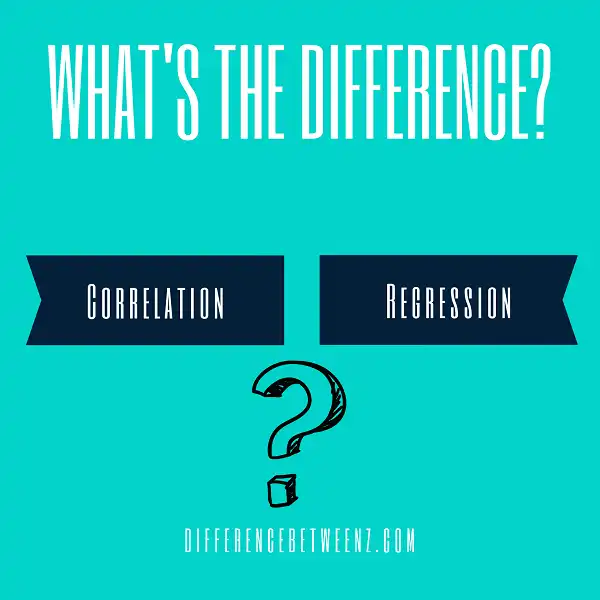There is a lot of confusion between correlation and regression, especially since they are often used interchangeably. However, there are some key differences between the two that everyone should be aware of. In this blog post, we will discuss what correlation and regression are, as well as outline the benefits and limitations of each method. Let’s get started!
What is Correlation?
Correlation is a statistical measure that determines the strength and direction of the relationship between two variables. Generally speaking, if two variables are highly correlated, it means that they tend to move in the same direction.
- For example, if the price of a stock is rising, the number of shares traded is likely to also increase. Correlation can be positive or negative, and the degree of correlation is typically expressed as a number between -1 and 1.
- A correlation of 0 indicates that there is no relationship between the two variables, while a correlation of 1 (or -1) indicates a perfect positive (or negative) relationship. Correlations can be used to predict future behavior, but it is important to remember that they do not necessarily indicate causation.
- In other words, just because two variables are correlated does not necessarily mean that one causes the other. Correlation simply indicates that there is some relationship between the two variables.
What is Regression?
Regression is a statistical measure that attempts to determine the strength of the relationship between one dependent variable and a series of other variables. Regression analysis is used in a variety of fields, including psychology, medicine, economics, and political science.
The goal of regression is to find the line of best fit for a given set of data. This line can then be used to make predictions about future events. Regression analysis is a powerful tool that can help us to understand complex relationships between variables.
However, it is important to remember that regression does not always provide perfect predictions. In some cases, the line of best fit may not be entirely accurate. However, Regression can still be a valuable tool for understanding relationships between variables.
Differences between Correlation and Regression
Correlation and regression are two statistical measures that are used to describe the relationship between two variables.
- Correlation is a measure of how well two variables are linearly related, while regression is a method of predicting one variable based on the known values of another variable.
- While both correlation and regression can be used to describe the relationship between two variables, there are some important distinctions between the two methods.
- The correlation only measures linear relationships, while regression can be used to measure non-linear relationships as well.
- Furthermore, correlation cannot be used to make predictions about the future values of a variable, while regression can be used for this purpose.
Finally, correlation is affected by outliers, while regression is not. As a result, correlation and regression are two powerful but distinct statistical measures.
Conclusion
So what’s the difference between correlation and regression? In short, correlation is used to measure the strength of a relationship between two variables, while regression is used to predict or explain one variable based on another. When it comes to using these techniques in business, it’s important to understand which type of analysis will give you the answers you need for your specific question. If you have any questions about how to use correlation or regression in your business analysis, don’t hesitate to reach out for help. Our team at Excel with Business is more than happy to walk you through everything you need to know in order to start using these powerful tools effectively.


